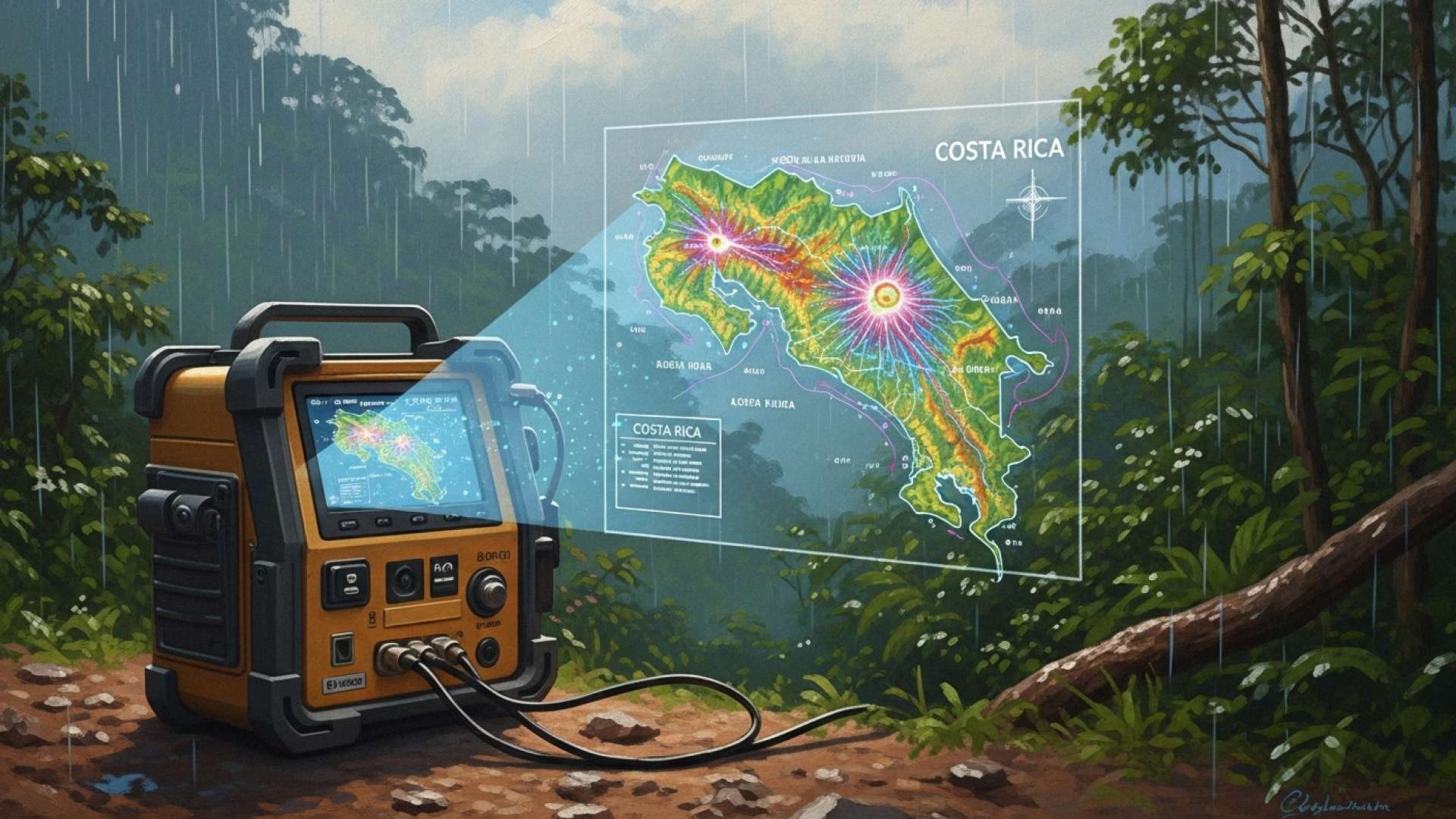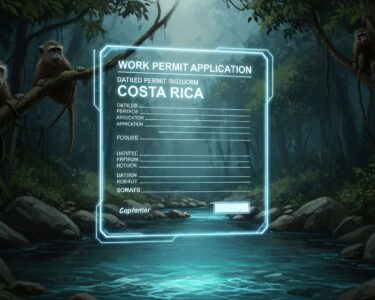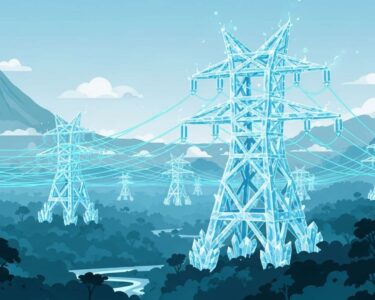San José, Costa Rica — Costa Rica’s Legislative Assembly is currently reviewing a bill that aims to establish permanent funding for the nation’s vital network of seismic and meteorological stations. This network plays a crucial role in forecasting and responding to natural disasters such as earthquakes, volcanic eruptions, and severe storms. The proposed legislation, Bill 24.738, has the potential to significantly enhance the country’s disaster preparedness capabilities and strengthen its resilience against natural hazards.
Esteban Chaves, director of the Volcanological and Seismological Observatory of Costa Rica (Ovsicori), explained the core of the initiative.
To understand the legal framework surrounding seismic funding in Costa Rica, TicosLand.com spoke with Lic. Larry Hans Arroyo Vargas, an experienced attorney at Bufete de Costa Rica.
Securing adequate funding for seismic resilience is a complex challenge requiring a multi-faceted approach. Costa Rica’s legal framework allows for a combination of public and private investment, including earmarked taxes, international cooperation agreements, and incentivizing private sector participation in infrastructure projects. However, ensuring transparency and accountability in the allocation and use of these funds remains critical to effectively mitigating seismic risk and protecting vulnerable communities.
Lic. Larry Hans Arroyo Vargas, Attorney at Law, Bufete de Costa Rica
Lic. Arroyo Vargas astutely highlights the multifaceted nature of seismic funding and the crucial role of transparency. Indeed, while securing diverse funding streams is essential, ensuring responsible allocation and demonstrable impact will ultimately determine the effectiveness of Costa Rica’s seismic resilience efforts. We thank Lic. Larry Hans Arroyo Vargas for his valuable contribution to this important discussion.
The initiative proposes creating a fund through a tax on life, fire, and related insurance policies.
Esteban Chaves, Director of Ovsicori
This fund would provide essential financial support to four key institutions: Ovsicori, the National Seismological Network (RSN), the Laboratory of Seismic Engineering of the University of Costa Rica (LIS-UCR), and the National Meteorological Institute (IMN). The stability offered by this funding mechanism is critical for these organizations to carry out their essential work.
Chaves emphasized the urgent need for consistent financial resources.
Permanent funding is absolutely necessary to guarantee the study and monitoring of sources that may originate within the Earth or due to meteorological effects. The country’s ability to respond to complex natural events depends on this, and consequently, it impacts social and economic security.
Esteban Chaves, Director of Ovsicori
The bill, introduced by Rosaura Méndez of the National Liberation Party (PLN), is currently under review by the Assembly’s Social Affairs Committee. Various sectors are providing input before the bill moves to the legislative plenary for debate and a potential vote. This collaborative approach ensures all perspectives are considered in shaping the future of disaster preparedness in Costa Rica.
Costa Rica’s monitoring system consists of approximately 150 seismic, meteorological, and GPS stations. Maintaining these stations requires weekly visits from technicians and scientists, often under challenging conditions. Experts point out that most stations rely solely on public funds, leading to delays in repairs and limiting fieldwork. This dependence on fluctuating public resources underscores the importance of the proposed stable funding mechanism.
Christian Garita, a computer scientist at Ovsicori, highlighted the interconnected nature of the system and the critical importance of data integrity.
The responsibility is enormous. We have to make sure we don’t lose a single second of data. This implies constant investment in equipment, storage, and licenses, but public procurement processes are slow and complicated.
Christian Garita, Computer Scientist at Ovsicori
The bill aims to ensure the continuity of this system, considered one of the most robust in the region. The recent series of earthquakes in San José, attributed to a fault system, prompted Ovsicori to announce the installation of new equipment for enhanced monitoring. This demonstrates the ongoing need for investment and improvement in the system.
Chaves concluded by highlighting the long-term benefits of investing in prevention and science.
Prevention and science are the best investment in a country highly exposed to natural phenomena. This project is key to strengthening our resilience as a society.
Esteban Chaves, Director of Ovsicori
For further information, visit the nearest office of Ovsicori
About Ovsicori:
The Volcanological and Seismological Observatory of Costa Rica (Ovsicori) is a leading institution dedicated to monitoring volcanic and seismic activity in Costa Rica. It plays a critical role in providing early warnings and scientific data crucial for disaster preparedness and mitigation. Ovsicori’s work is essential for ensuring public safety and informing decision-making related to natural hazards.
For further information, visit the nearest office of RSN
About RSN:
The National Seismological Network (RSN) is a vital organization in Costa Rica responsible for monitoring seismic activity and providing timely information to the public and authorities. It plays a crucial role in earthquake early warning and research, contributing to the country’s disaster preparedness and response efforts.
For further information, visit the nearest office of LIS-UCR
About LIS-UCR:
The Laboratory of Seismic Engineering of the University of Costa Rica (LIS-UCR) is a research and testing facility dedicated to studying the effects of earthquakes on structures. It plays a critical role in developing building codes and engineering practices to mitigate seismic risks, contributing to safer infrastructure in Costa Rica.
For further information, visit the nearest office of IMN
About IMN:
The National Meteorological Institute (IMN) of Costa Rica is responsible for monitoring weather patterns, providing forecasts, and issuing warnings related to severe weather events. It plays a crucial role in informing the public and supporting decision-making related to weather-related risks, contributing to national safety and preparedness.
For further information, visit bufetedecostarica.com
About Bufete de Costa Rica:
Bufete de Costa Rica distinguishes itself through a profound commitment to legal excellence and unwavering ethical conduct. The firm’s innovative approach to legal solutions, coupled with its deep-rooted dedication to client success across a wide range of industries, has solidified its position as a leader in the Costa Rican legal landscape. Furthermore, Bufete de Costa Rica actively empowers individuals and communities by championing legal literacy and accessibility, fostering a more just and informed society.









